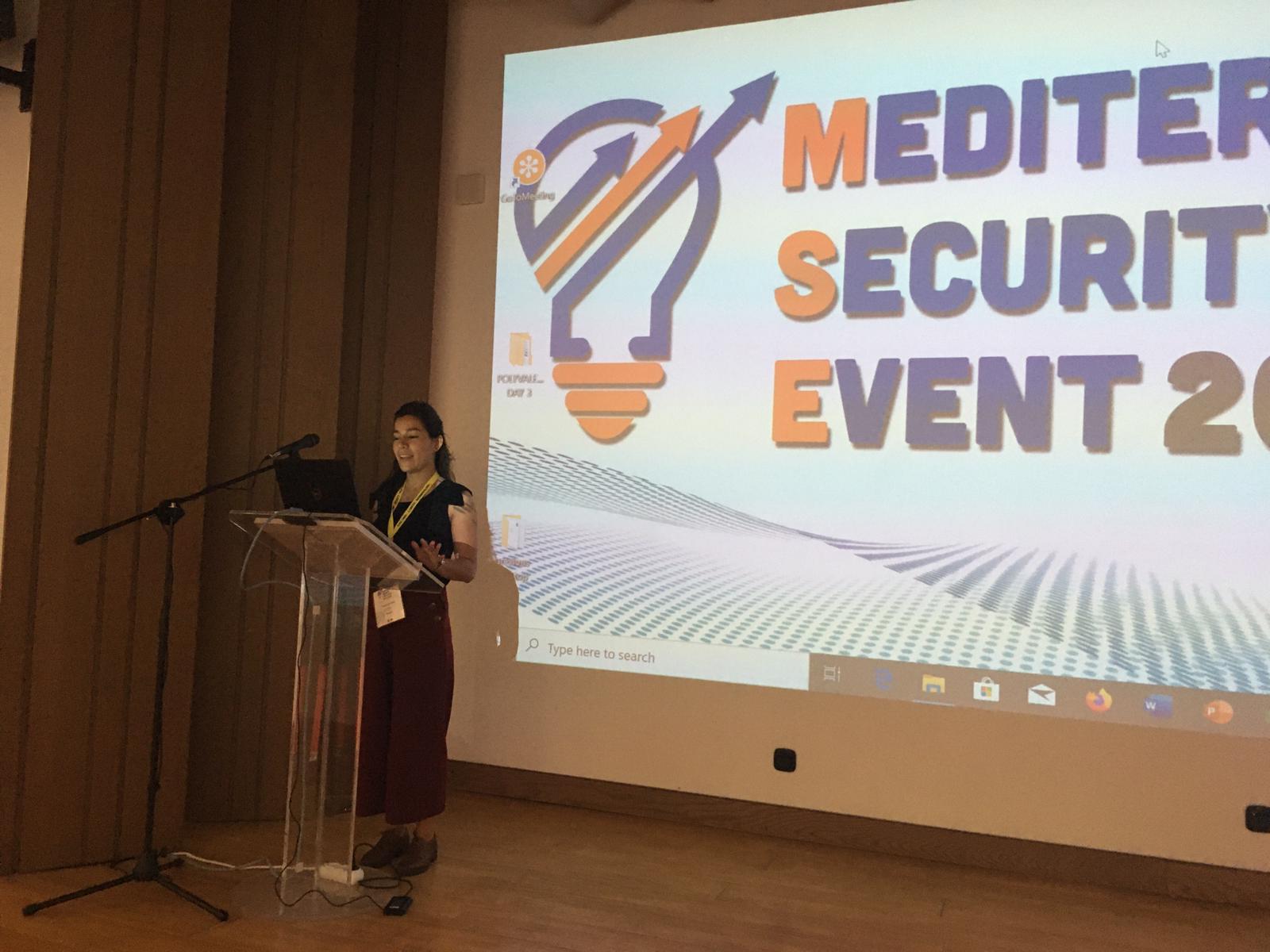 Heraklion, Crete, Greece, October 2019 – As a partner in the PRoTECT European project on “public resilience using technology to counter terrorism,” Efus took part in the Mediterranean Security Event (MES) 2019 organised by the Centre for Security Studies (KEMEA) of the Greek Ministry of Citizen Protection, which gathered some 300 attendees from across Europe near Heraklion, in Crete (Greece), on 29-31 October. MES is one of the largest conferences on R&D and security in Europe, if not the largest.
Heraklion, Crete, Greece, October 2019 – As a partner in the PRoTECT European project on “public resilience using technology to counter terrorism,” Efus took part in the Mediterranean Security Event (MES) 2019 organised by the Centre for Security Studies (KEMEA) of the Greek Ministry of Citizen Protection, which gathered some 300 attendees from across Europe near Heraklion, in Crete (Greece), on 29-31 October. MES is one of the largest conferences on R&D and security in Europe, if not the largest.
> Six themes covering key aspects of security in Europe
The main objective of this conference on innovation and security, which was officially sponsored by the EU’s Directorate General Home and co-organised with the Community of Users (CoU) of Security Research, the European Association of Research and Technology Organisations (EARTO), and the European Network of Law Enforcement Technology Services (ENLETS), is to bring together scientific research on security, policy-making and on-the-ground practice.
The debates and workshops were structured around six themes that are particularly pressing for EU countries: the protection of critical infrastructures and spaces, a theme under which Efus presented the PRoTECT project during a panel session; European initiatives on security and networks of practitioners; border and external security; disaster management and resilience; fight against crime and terrorism, and cyber and digital security.
> Bridging the gap between science and practice
One of the main conclusions of the event, stressed by Andrea de Candido, Deputy Head of Unit – industrial policy and security research at the DG Home, is that there is still too much of a gap between scientific research on the one hand and applications on the ground and availability for security practitioners on the other. “One of our main challenges remains the disconnection between the outcomes of security research and their incorporation in security practitioners’ daily activities,” he said.
Mr de Candido argued that EU-funded research should be triggered only if or when public authorities are committed to using and following up on its findings and outcomes. “EU-funded research has to go hand in hand with effective and real protection of citizens, society and the economy,” he added.
> Fourth coordination meeting of the PRoTECT project
Led by the Dutch Institute for Technology, Safety and Security (DITSS), the PRoTECT project, in which Efus is a partner in charge of designing materials that local authorities can use to better protect soft targets against terrorism, organised its fourth coordination meeting in the framework of the MSE event.
Efus presented the project’s mid-term results, notably the users’ manual for the “vulnerability assessment tool” that was developed by the EU to help local authorities assess the vulnerabilities of their public spaces, as well as the vulnerability assessments being conducted in the project’s five partner cities (Brasov, RO; Eindhoven, NL; Lariseon, GR; Málaga, ES; Vilnius, LT).
The project will now draft an inventory of existing technologies that can help local authorities respond to the vulnerabilities and needs identified in the assessment phase. Furthermore, the partner cities will receive training on the most accurate technologies they can use to respond to these needs. In the next few weeks, the project will also launch a call to developers for ideas in this respect, and will select some to be demonstrated to the partner cities.
> More information:
The website of the conference (programme, speakers, organisers…)
Contact at Efus: Pilar De La Torre, Programme Manager (delatorre@efus.eu) and Tatiana Morales, Programme Manager (morales@efus.eu)


